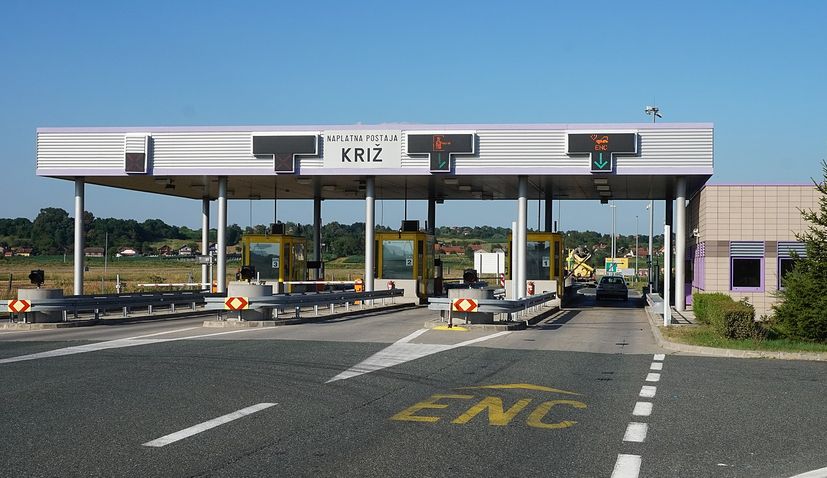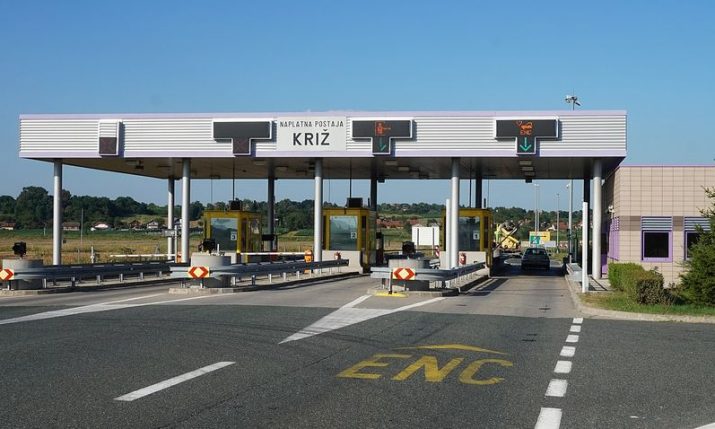by croatiaweek
July 12, 2025
in

(Photo: Lan Glad/CC BY-SA 4.0)
A significant change is on the horizon for drivers in Croatia, as traditional motorway toll booths are set to become a thing of the past.
The Croatian government has placed a new draft law into public consultation this week, paving the way for a fully electronic tolling system expected to be in operation by next summer, Klikni.hr reports.
The upcoming system will eliminate the need for stopping at toll gates, replacing them with automatic, contactless toll collection through two key technologies: the upgraded ENC device and Automatic Licence Plate Recognition (ALPR).
Under the new system – referred to as ESNC (Electronic System for Toll Collection without Barriers) – vehicles will be detected while in motion, allowing tolls to be charged seamlessly without interrupting traffic flow.
How It Will Work
Drivers will have the option to choose between:
ENC Device: A small electronic unit mounted on the windscreen that allows for automatic toll payment.
ALPR System: Utilises cameras to read number plates at motorway entry points. Tolls can then be paid via bank card, mobile app, or at designated retail points such as petrol stations and vehicle inspection centres.
However, heavy goods vehicles will be required to use the ENC device without exception. Existing ENC units can continue to be used, provided they meet the new technical specifications.
Strict Enforcement and Penalties
Participation in the system will be mandatory. Driving on the motorway without proper registration in the system will be treated as a violation.
Offenders will face an additional penalty fee of €120 on top of the standard toll, which can be enforced by the concessionaire. The law also mandates that vehicle owners or leasing users must provide accurate details of the driver if requested.
Enforcement will rely on a comprehensive network of roadside gantries equipped with cameras and antennas, as well as mobile monitoring units. Croatian Motorways (HAC) has assured the public that the technology offers near-perfect accuracy in identifying violations.
In addition to modernising toll collection, the new legislation introduces environmental charges linked to pollution, noise, and CO₂ emissions. At the same time, it allows for limited discounts—up to 13%—for low-emission vehicles and frequent users.
Seasonal pricing models are also under review, which could result in higher tolls during the summer months to reflect increased traffic volumes.
